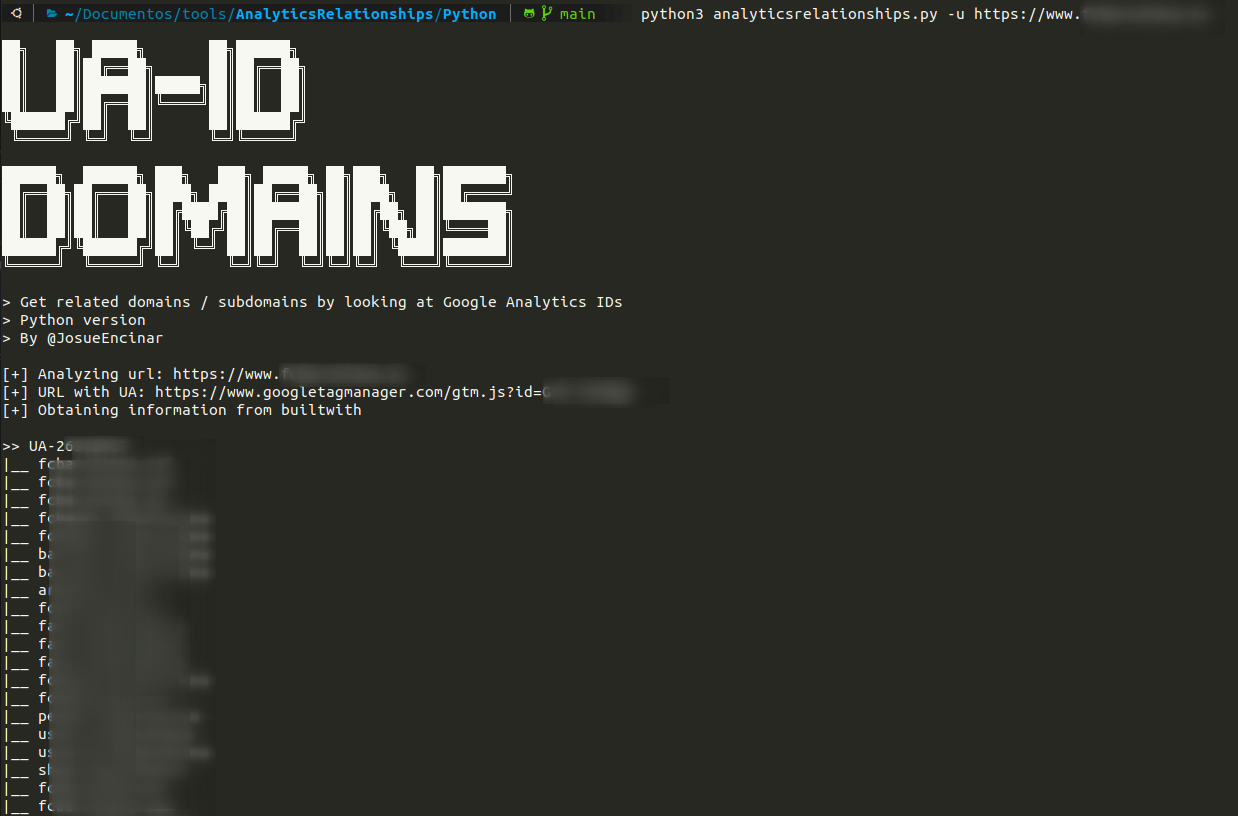Ecosyste.ms: Awesome
An open API service indexing awesome lists of open source software.
https://github.com/Josue87/AnalyticsRelationships
Get related domains / subdomains by looking at Google Analytics IDs
https://github.com/Josue87/AnalyticsRelationships
bugbounty osint subdomains
Last synced: 27 days ago
JSON representation
Get related domains / subdomains by looking at Google Analytics IDs
- Host: GitHub
- URL: https://github.com/Josue87/AnalyticsRelationships
- Owner: Josue87
- License: gpl-3.0
- Created: 2021-05-15T09:51:40.000Z (about 3 years ago)
- Default Branch: main
- Last Pushed: 2022-06-03T14:00:13.000Z (about 2 years ago)
- Last Synced: 2024-02-28T15:32:14.964Z (4 months ago)
- Topics: bugbounty, osint, subdomains
- Language: Go
- Homepage:
- Size: 60.5 KB
- Stars: 215
- Watchers: 5
- Forks: 29
- Open Issues: 3
-
Metadata Files:
- Readme: README.md
- License: LICENSE
Lists
- osint_stuff_tool_collection - AnalyticsRelationships
- awesome-hacking-lists - Josue87/AnalyticsRelationships - Get related domains / subdomains by looking at Google Analytics IDs (Go)
README
AnalyticsRelationships
This script try to get related domains / subdomains by looking at Google Analytics IDs from a URL. First search for ID of Google Analytics in the webpage and then request to builtwith and hackertarget with the ID.
**Note**: It does not work with all websites. It is searched by the following expressions:
```
-> "www\.googletagmanager\.com/ns\.html\?id=[A-Z0-9\-]+"
-> GTM-[A-Z0-9]+
-> "UA-\d+-\d+"
```
## Available versions:
* [Python](Python)
* [GO](.)
## Installation:
Installation according to language.
### Python
```
> git clone https://github.com/Josue87/AnalyticsRelationships.git
> cd AnalyticsRelationships/Python
> sudo pip3 install -r requirements.txt
```
### GO
```
> git clone https://github.com/Josue87/AnalyticsRelationships.git
> cd AnalyticsRelationships/
> go build -ldflags "-s -w"
```
### Docker
```
> git clone https://github.com/Josue87/AnalyticsRelationships.git
> cd AnalyticsRelationships
> docker build -t analyticsrelationships:latest .
```
## Usage
Usage according to language
### Python
```
> python3 analyticsrelationships.py -u https://www.example.com
```
Or redirect output to a file (banner or information messages are sent to the error output):
```
python3 analyticsrelationships.py -u https://www.example.com > /tmp/example.txt
```
### GO
```
> ./analyticsrelationships --url https://www.example.com
```
Or redirect output to a file (banner or information messages are sent to the error output):
```
> ./analyticsrelationships --url https://www.example.com > /tmp/example.txt
```
You can also pass a file as input
```
> cat file.txt | ./analyticsrelationships
```
Or a single URL
```
> echo https://www.example.com | ./analyticsrelationships
```
### Docker
Only Python Version.
```
> docker run -it analyticsrelationships:latest https://www.example.com
```
Or redirect output to a file (banner or information messages are sent to the error output):
```
> docker run -it analyticsrelationships:latest https://www.example.com > /tmp/example.txt
```
## Examples
### Python
Output redirection to file /tmp/example.txt:

Without redirection:

### GO
Without redirection:

Working with file redirection works just like in Python.
An example with a file:

# Disclaimer!
This is a PoC. The author is not responsible for any illegitimate use.



